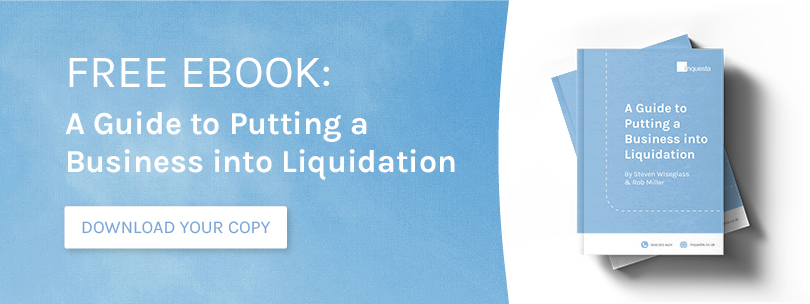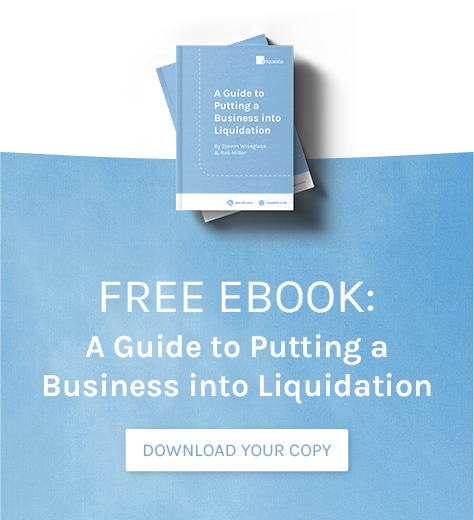It is a sad reality that the financial pressures of modern living and modern business can mean that your economic circumstances can easily take a turn for the worse. What was once a manageable level of debt can quickly become a real burden — in some cases through no fault of your own.
This can be true for business owners and individuals alike. If this happens to you, something many people do not realise is that it could actually be possible to negotiate with the people you owe money to.
Making a settlement offer to creditors is just one way in which you can attempt to bring your level of debt back under control. This form of debt management can be especially effective because you can remove the need to make regular monthly payments, and instead focus on clearing as much of the debt off as possible in one go.
This blog will detail exactly what a settlement offer is, how to make your offer as effective as possible, its pros and cons, as well as guidance on how to make one.
What is a Settlement Offer?
A settlement offer is a form of debt solution that involves negotiating directly with your current creditors and coming to an agreement to settle your remaining debts in one lump sum. Generally, the owing party will be the one to initiate negotiations. However, creditors may also make the first move by quoting an acceptable settlement amount.
Usually, making settlement offers to creditors will revolve around you asking them to accept a lower amount than what you owe. For your creditor it means that — while they will receive less money — they will get a large lump sum rather than monthly payments that could potentially dry up down the line.
Traditionally, settlement offer negotiations will be almost entirely carried out by yourself, so it is a good idea to seek specialist assistance beforehand to give you the best possible chance of success.

What is a Good Settlement Offer?
If you wish to ensure that your settlement offer is a good one, there are a few important steps you should consider, this includes:
- Make sure that you are totally prepared for the process
- Do not rush into making an offer
- Be honest at all times
Ultimately, what makes a settlement offer successful is if the owing party has done their due diligence — have they weighed up all of their options, sought out expert assistance, do they appear genuine and honest etc.
Advantages & Disadvantages of Making a Settlement Offer to Creditors
When weighing up if a settlement offer is right for your situation, it’s important to weigh up the pros and cons. Like all forms of debt management, there are distinct advantages and disadvantages, from reducing the amount owed and paying on better terms; or the reticence creditors can have to accept this type of offer in the first place.
Some advantages of making a settlement offer to creditors are:
- Help you avoid bankruptcy.
- It can reduce the overall amount you are required to repay
- Manageably clearing your debts can provide you with a fresh start financially
- Once a settlement has been accepted, you are generally free from all creditor pressure
Key disadvantages of settlement offers include:
- A large lump sum will be required to even attempt it.
- Creditors may be unwilling to accept it in the first place as they would rather attempt to obtain the full amount owed
- A settlement offer could have an impact on your creditor file. Contact a specialist for more information.
Key Information about Making Settlement Offers to Creditors
Before making a settlement offer to your creditors there are a few details that you should keep in mind. This can be important in both ensuring you get the maximum out of your offer, as well as ensuring you are protected against any eventuality.

Dealing with Multiple Creditors
You may find that you have more than one creditor that you want to send a settlement offer to. In this case, it is important that you first of all work out exactly how much you want to send to each party. After all, you must be sure that you are making everyone a fair offer.
The creditor that you owe the most amount of money to should naturally be offered the largest share and so on — a process known as a pro-rata offer. As part of this offer, it is important to be honest to your creditors about how much of your settlement request they are each going to receive.
To calculate how much each creditor should receive, you can use the following formula: Amount owed to single creditor ÷ total debt amount x lump sum amount as a starting point. However, this calculation should not be considered an alternative to seeking professional advice.
Be sure to include all of your calculations in a table to ensure that all of your creditors get a clear idea of how much they will be receiving.
Coping with Rejection
Unfortunately, you may find that some of your creditors will not be happy with your proposal. This could lead to you setting up a separate solution to repay your debt to them, or amend your original offer if possible.
It is also worth exploring some other debt solution options to see if they are more agreeable for your creditors. Examples of this include Individual Voluntary Arrangements (IVAs) or a Debt Relief Order (DRO).
Impact on your Credit File
As mentioned above, if your creditors accept your settlement offer, your debt will be marked as ‘partially settled’ on your credit file. Most credit reference agencies will use a flag featuring the letter P to show this. The balance left on the debt will also be shown as zero to demonstrate that nothing else is owed.
This will be seen by other creditors and potential lenders and could sway their decision on whether they want to provide you with additional funds. This is because ‘partially settled’ means you were unable to pay the full amount you owed.
After a period of six years, the credit note will be removed from your file and should not affect your rating any more.

How to Make a Full and Final Settlement Offer
Understanding exactly how to make a full and final settlement offer to your creditors could be vital for the long term future for your personal (or company) finances. When preparing an offer, there are a few important things to consider. This includes making sure you have significant money available, that you understand the process, whether you require specialist assistance.
Be Certain you Have the Money
This may seem obvious, but it is important that you have required funds ready in your account before making a settlement offer to creditors. Whether the money comes from an inheritance, financial assistance from family members or any other source, it is essential that the amount of money is definite before you start involving the people you owe money to.
While the temptation may be strong to commence negotiations as soon as the prospect of a lump some arises, there may be a change in circumstances that means you end up with less money than you anticipated — leaving you with a set of promises that you are no longer able to keep. Examples of this include an inheritance turning out to be less than you imagined, or the person who promised you the funds is no longer able or willing to help.
As such, you should only start approaching your creditors when you have the money set aside and secure.
Start the Negotiations
Now that you are ready to get in touch with your creditors and have decided how much you want to offer them, you will first of all need to send them a debt settlement proposal letter. This will outline the figure you are offering to pay and when you can do this by.
Your letter should also explain why you are unable to settle the debt in full and make it clear that it is a limited time only offer. It is also important that you specify your offer must be accepted in writing and ensure you keep proof of postage (ideally send it tracked too) so you have a record of when your correspondence was sent.
In Writing
When preparing your settlement offer, it is important that you ensure your creditor accepts your full and final offer in writing. Additionally, it is important that you make sure that you keep a copy of this acceptance, just in case there is ever a dispute. A dispute could happen years down the line in some cases, and physical evidence can act as proof.
Additionally, if you are settling a particularly large, or highly important debt, it could be worth considering having a formal agreement drawn up by a solicitor. This would be signed by both you and the creditor for verification. While this is not generally necessary, it can be useful in certain situations.
Seek Specialist Guidance
When making a settlement offer to creditors, it is important to make sure that you have every base covered, know exactly what is going to happen, and are as protected as possible against any possible eventualities.
It may be worth considering seeking specialist advice to guide you to the end-goal you want. A specialist will have been there and seen it all — they should have acted in assisting countless parties making settlement offers in the past, meaning they should know exactly how to support you in your own offer.

Can I Change My Mind on a Settlement Offer?
It should be possible for you to change your mind on a settlement offer at any point prior to the agreement being officially signed. Once you have signed the document, it will be seen as a full and final settlement of the claims. At this point the agreement will be deemed legally binding and cannot be revoked.
It should be noted that if you did change your mind on a settlement offer and withdrew late in the day, that there could be serious implications. The most common implication of a late withdrawal is that if legal costs were incurred by the other side, they could attempt to to recover these costs down the line.
Expert Advice from Inquesta
If you are struggling to satisfy your obligations, either as an individual or a business owner, it is essential that you seek specialist advice at the earliest possible opportunity. This is where Inquesta can help.
We have amassed decades of experience in assisting people from all areas of industry in resolving their financial difficulties in a manner that best suits them. We’ll carry out a thorough investigation into your individual circumstances and recommend what we believe to be the best solution for you.
Whether it is coming up with tax debts solutions, opinions on solvency or organising a debt management plan, we are perfectly placed to help. For more information, book a free consultation or contact our team today.




